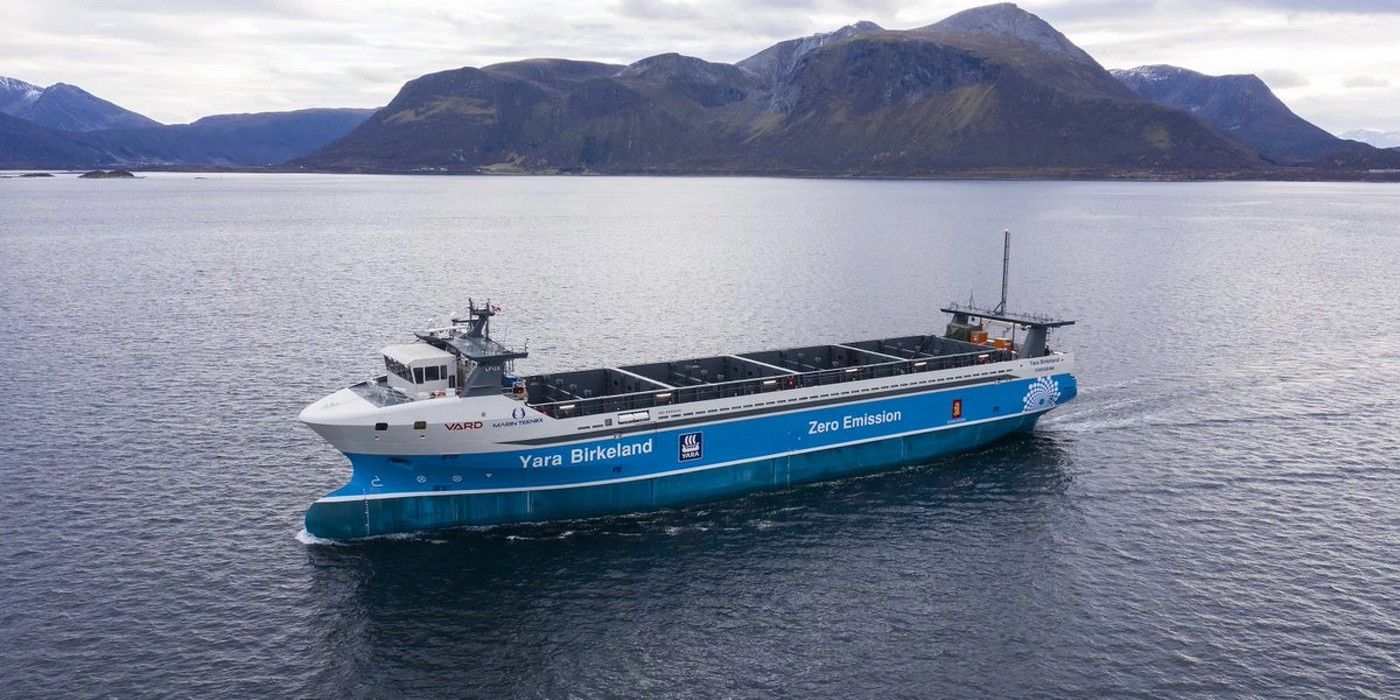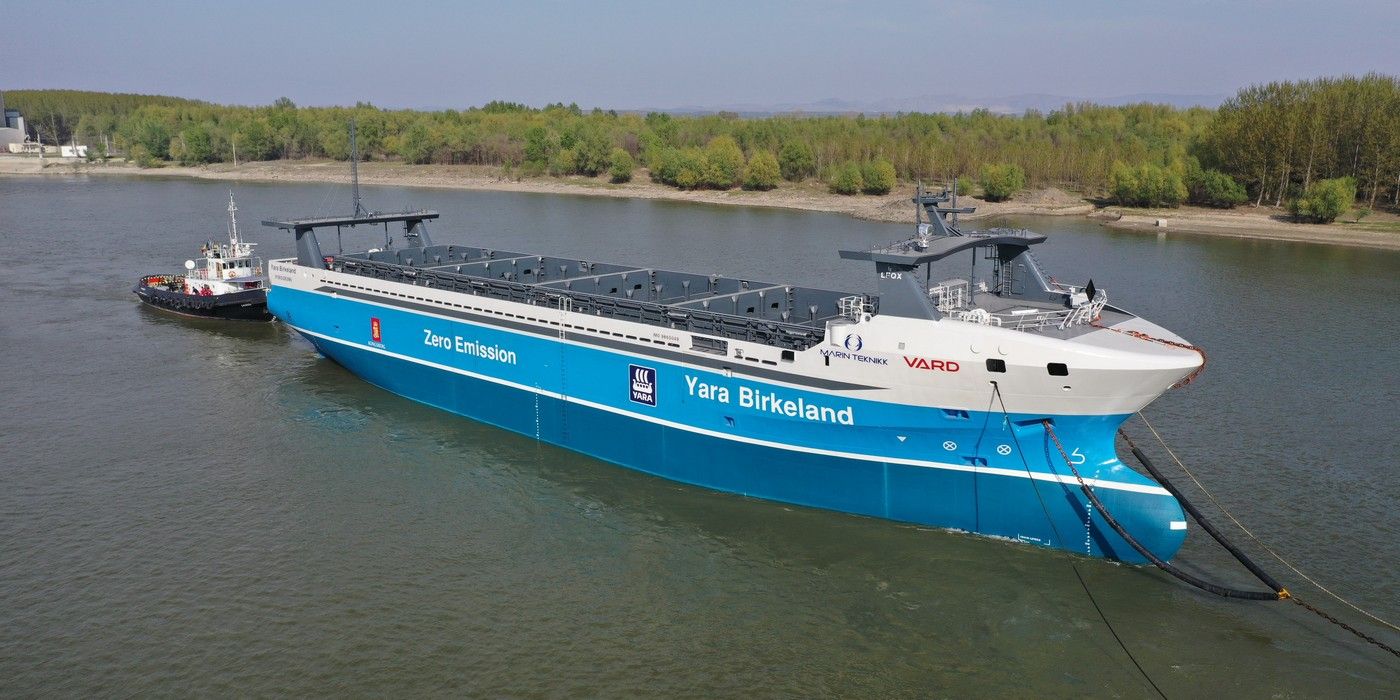The world's first all-electric, autonomous cargo ship has taken to the waters in Norway in a move that promises to be a massive win for the environment. Even though electric cars are becoming more mainstream, all-electric boats are still relatively rare. Fully autonomous vessels are also not that common, although more than 1,000 maritime autonomous surface ships (MASS) are said to be in operation as of September 2021.
With people looking for more efficient vessels that are both cheap to run and less harmful to the environment, the number of autonomous and electric vessels has risen in recent years. However, all-electric vessels are still primarily restricted to ferries and small passenger boats on inland waterways for the most part. This is where the Norwegian ship will be different, as it will be operating in the open seas, hauling cargo between ports across southern Norway.
Commissioned by Norwegian chemicals company Yara International, MV Yara Birkeland is an all-electric autonomous container ship that completed its maiden voyage earlier this week. From the town of Horten to the capital Oslo, the journey served as a precursor for its commercial deployment next year. According to a press release by Yara, the ship will now undergo a two-year testing period to be officially certified as an autonomous vehicle. In the meantime, it will be deployed into commercial operations in 2022. It will haul fertilizers from Yara's plant in Porsgrunn in southern Norway to the port of Brevik, a distance of around 14 km (about 8.7 miles). Once fully operational, Yara expects Birkeland to replace up to 40,000 diesel-powered truck trips per year, cutting up to 1,000 tons of carbon emissions.
The Yara Birkeland Has The Power Of 100 Teslas
Yara Birkeland is 262-feet long and has a cargo capacity of 120 TEU. It can travel at a top speed of 15 knots and is powered by a 7MWh battery which is the equivalent of 100 Tesla cars. In terms of technology, the ship will carry several advanced sensors, including lidar, AIS, camera, and radar to ensure that it can detect other vessels and avoid collisions. According to Reuters, the ship will eventually be able to load and offload its cargo, charge its battery and navigate without any human involvement.
According to Yara, the ship is a collaborative project between several government agencies and corporate agencies, including technology company Kongsberg, which will be responsible for integrating the sensors and other systems for autonomous navigation. In addition, the ship was built by VARD with financial support from a Norwegian government enterprise called Enova, which is responsible for the promotion of renewable energy. The company is said to have provided 133 million Norwegian Krone ($14.94 million) to build Birkeland.


